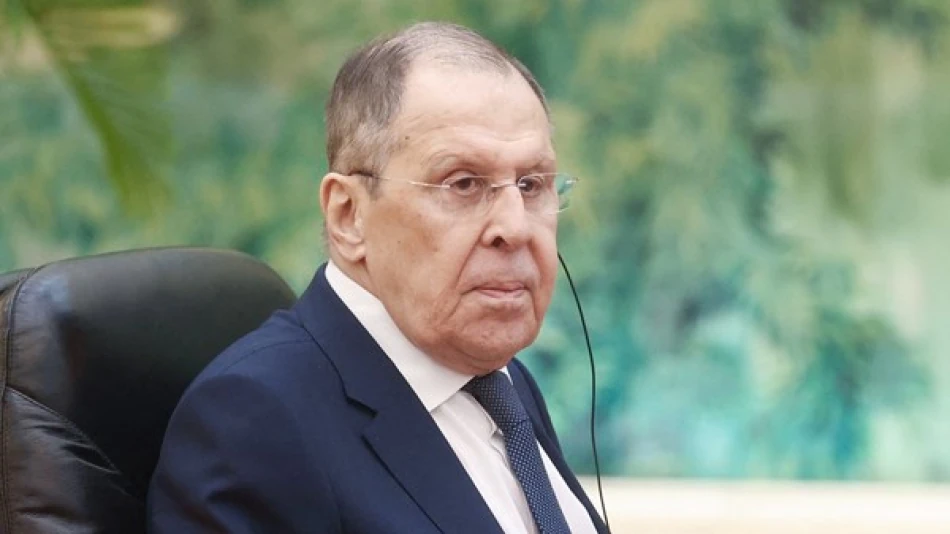
Russia's Lavrov: Prepared to Confront Any New Sanctions with Unwavering Resolve
Russia Dismisses Trump's Tariff Threats as Moscow Weighs New Sanctions Strategy
Russian Foreign Minister Sergei Lavrov expressed unwavering confidence in his country's ability to withstand any new sanctions, responding defiantly to President Donald Trump's ultimatum threatening tariffs on Russian goods within 50 days unless progress is made on resolving the Ukraine conflict. The exchange signals an early test of economic pressure tactics in the Trump administration's approach to ending the war.
Lavrov's Defiant Response
Speaking at a press conference on the sidelines of the Shanghai Cooperation Organization foreign ministers' meeting in Tianjin, China, Lavrov dismissed concerns about potential new economic penalties. His comments came just one day after Trump's Monday threat to impose tariffs on Russian goods if no agreement is reached to halt the ongoing crisis in Ukraine.
Rather than showing concern, Lavrov indicated that Russia is seeking to understand the motivations behind Trump's statements, suggesting Moscow views the ultimatum as potentially negotiable rather than a firm red line.
Trump's 50-Day Ultimatum Strategy
The president's tariff threat represents a shift from the Biden administration's approach, which relied heavily on multilateral sanctions coordinated with European allies. Trump's unilateral tariff strategy mirrors his previous trade war tactics with China, where he used American import duties as leverage in negotiations.
However, the effectiveness of this approach against Russia remains questionable. Unlike China, which had significant trade exposure to the U.S. market, Russia has already been largely cut off from Western markets since 2022, potentially limiting the impact of additional American tariffs.
Market and Economic Implications
Russia's economy has demonstrated remarkable resilience to previous sanctions waves, adapting through increased trade with China, India, and other non-Western partners. The country's energy exports have found new markets, while domestic production has substituted for many previously imported goods.
For global markets, the tariff threat adds another layer of uncertainty to commodity prices, particularly energy and agricultural products where Russia remains a significant player despite sanctions. Traders are likely watching for signs of whether Trump's approach will escalate or de-escalate the broader economic conflict.
Diplomatic Positioning
Lavrov's confident response suggests Russia believes it has successfully weathered the worst of Western economic pressure. This perception could strengthen Moscow's negotiating position, as it may feel less compelled to make concessions under economic duress.
The timing of these exchanges, occurring during a Shanghai Cooperation Organization meeting in China, underscores Russia's pivot toward alternative international frameworks that exclude Western powers. This institutional backing may contribute to Moscow's confidence in resisting additional pressure.
Trump's 50-day timeline creates a defined window for potential diplomatic breakthrough or escalation, setting the stage for what could become a defining moment in his administration's foreign policy approach toward the conflict.
Most Viewed News

 Layla Al Mansoori
Layla Al Mansoori






